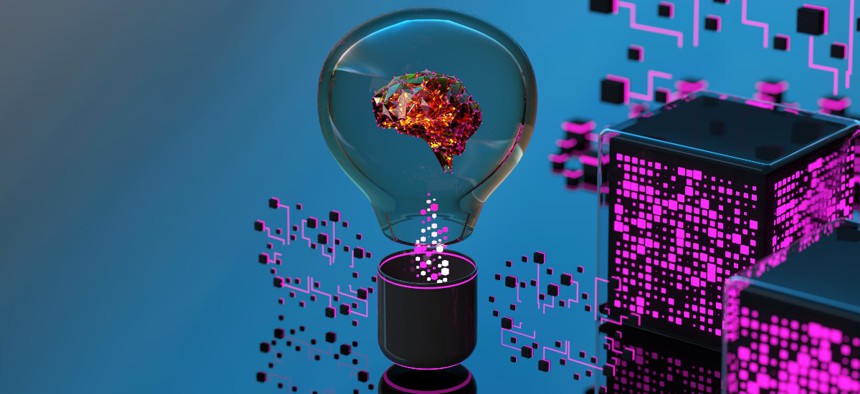DOE Grants $400,000 to Professor’s Quantum Computing Research

Olemedia/Getty Images
The Biden administration has developed new partnerships in academia to advance such research.
A new two-year partnership between the Department of Energy and a U.S. university aims to advance scientific developments in the quantum computing field, an emerging technology that is fast becoming a critical component to domestic and national security.
Announced by the participating institution, Stony Brook University in New York, a two-year DOE grant of $400,000 was awarded to the school’s computer science assistant professor Supartha Podder effective September 1.
Podder’s research will specifically focus on quantum witnesses, or pieces of data that work to provide help and certify an answer to a given computation.
The emphasis on witnesses will help researchers determine if quantum computing is indeed more efficient than classical computing systems. The key difference between the two are the processing units; quantum computers utilize qubits to process data whereas classical computers use binary numbers. Quantum computers that can process qubits, whose value can be anything between the binary digits 0 and 1 that characterize classical computing, stand to be incredibly powerful due to the speed at which they can run computations. But quantum computers are also more prone to producing errors or “noise” in the results.
“My work looks to see if quantum computing is better than traditional computing types,” Podder explained in a press release. “We will do this by not only comparing quantum with classical in terms of standard resources such as time and space needed for computation but also in terms of broader and more abstract resources such as computational advice and witness.”
In order to better observe and understand quantum witnesses, Podder will work on designing new quantum algorithms and continue to investigate witnesses’ mechanical properties.
“Think of it as solving one piece of the bigger quantum advantage puzzle,” he said. “The ultimate overall goal is to understand when and why quantum computation outperforms traditional classical computation.”
This grant supports the Biden administration’s larger plan to advance quantum computing research in the U.S. And because other countries have also invested in quantum research, federal agencies have recently focused on developing strong post-quantum cryptography and related standards for public and private networks to protect sensitive data from quantum computers’ potential encryption-cracking power.






